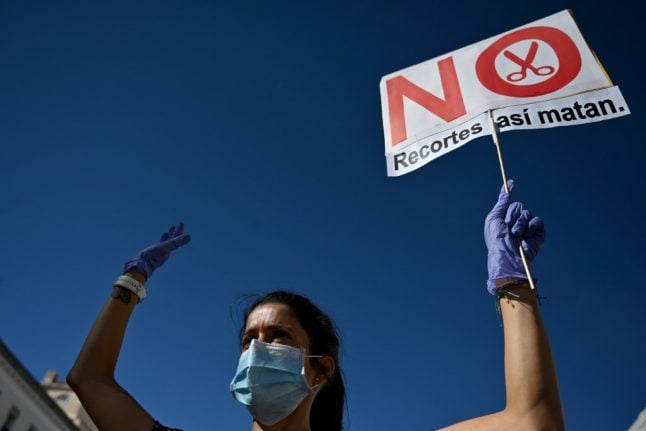Public spending will be 10 percent higher than in 2020 under the draft budget which will include 27 billion euros ($32 billion) from a massive European Union coronavirus recovery plan, Prime Minister Pedro Sanchez told ahead of a cabinet meeting which is set to approve the plan.
The amount of money allocated to public spending is “the most ambitious in our democratic history,” said Sanchez, whose Socialist govern in a minority coalition with far-left Podemos.
Spain, one of the EU nations worst hit by the EU by the pandemic, is set to receive a total of 140 billion euros in grants and loans over the recovery fund's 2021-26 lifetime, making it one of its biggest beneficiaries along with
Italy.
The draft budget calls for higher corporate taxes on big companies, a raise in the income tax on high earners, and a hike in the value-added tax on sugary drinks.
The extra revenue will help fund a 151-percent rise in the public health budget, which will receive an extra three billion euros, of which 2.4 billion will come from EU funds to buy vaccines and strengthen the country's primary care network.
“We are inaugurating a new stage in Spain's economic policy, which definitely leaves behind the neoliberal stage of austerity and budget cuts,” Sanchez's deputy and the leader of Podemos, Pablo Iglesias, said.
The budget plan will still have to be approved by parliament, where the government controls just 155 out of 350 seats.
Passing an annual budget has become highly complex in Spain in recent years as the rise of new parties has led to an increasingly fragmented parliament.
Sanchez's first term in office ended with a snap election last year when he failed to win support for his budget, and he has been governing since with a 2018 budget that has been rolled over twice.
The Spanish government said last month that it would have to suspend the fiscal rules EU-member states must normally meet, in 2020 and 2021, as a result of the pandemic's impact on the economy.
The annual public or budget deficit stood at 6.46 percent at the end of June and is seen rising to 11.3 percent at the end of the year.
EU finance ministers agreed in March to suspend stringent rules on running public deficits in the bloc in to allow member states to spend freely to tackle the impact of the coronavirus pandemic.
READ ALSO: Why Spain is the only country in Europe where taxes are rising during the pandemic



 Please whitelist us to continue reading.
Please whitelist us to continue reading.
Member comments